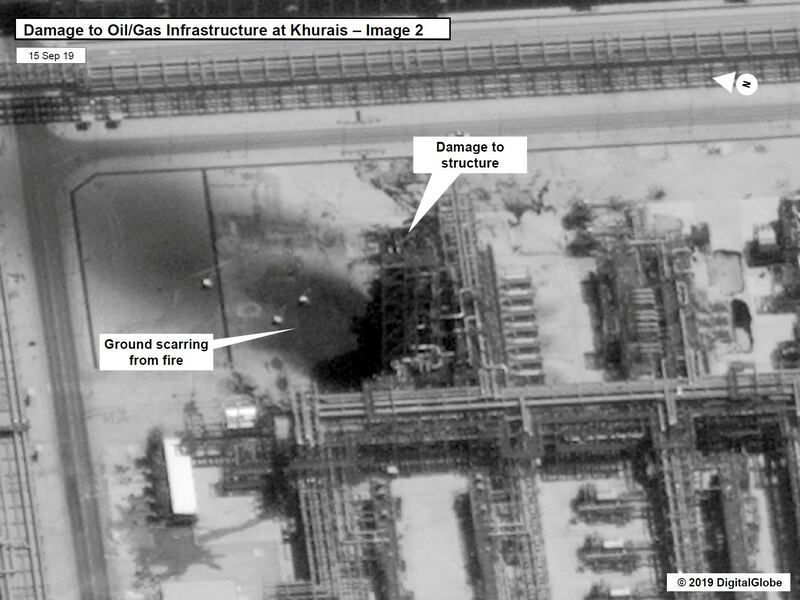Saturday's attacks on Saudi Aramco facilities were "almost certainly" Iran-backed, the kingdom's ambassador to London said.
Prince Khalid bin Bandar described the strikes on Abqaiq, the largest oil-processing plant globally, and the Khurais oilfield as a "blow for the world" and its economy, and not only Saudi Arabia.
"We are trying not to react too quickly because the last thing we need is more conflict in the region," he told the BBC.
The attacks resulted in just over a five per cent cut to global crude oil supplies, although the Saudi Energy Minister Prince Abdulaziz bin Salman said output would be restored by the end of the month.
"Abqaiq processes almost more than half the amount of oil that we produce in Saudi, which is not a small amount," said Prince Khalid, as he detailed the potential effects of the attacks on Saudi Aramco.
The US blames Iran's for the strikes on Saturday, which have also been claimed by Houthi rebels in Yemen. Saudi Arabia is investigating what happened and has invited UN experts to support their efforts.
The ambassador, who said he hoped there would not be a fresh conflict in the Middle East, was also asked about the Saudi role in Yemen, where it is part of a Coalition supporting the internationally recognised government against the Houthis.
“We didn’t start the conflict there," he said. "We went into Yemen in order to try and pacify the situation. I know that sounds backwards. There’s no conflict that is a good conflict.
“Our intervention in Yemen was to restore the democratically elected government with a UN mandate because we saw that what was happening in Yemen had the possibility to branch out wider.
“We felt we had to get involved because it was in the greater interest of Yemen, Saudi Arabia and the region… we can’t leave Yemen on its own. Yemenis are out brothers. There are family relations, there are cultural relations, religious ties.”
UK Prime Minister Boris Johnson spoke to US President Donald Trump on Wednesday about the Saudi Aramco incident.
“They condemned the attacks and discussed the need for a united diplomatic response from international partners. They also spoke about Iran and agreed that they must not be allowed to obtain a nuclear weapon," a Downing Street spokesperson said.
On Tuesday, Mr Johnson held a call with Saudi Crown Prince Mohammed bin Salman and "expressed the UK's condemnation of the attacks and said the UK stands by Saudi Arabia and is committed to the country's security".
A Foreign Office statement said both leaders emphasised the need to establish the facts of what happened and for a collective response.
It came as the UK’s former defence minister Liam Fox declared the 2015 Iranian nuclear deal “as dead as a dodo,” in an interview with radio station LBC.
At a speech in Washington on Tuesday he also said European efforts to rescue the nuclear agreement were “futile” as he set out why it was “doomed” from the beginning.
“It failed to tackle the main problem of malign Iranian actions beyond its own borders,” he said.
“Even as European countries sought ways to try and finance trade with the Iranian regime, Iranian inspired terror groups increased their activities across the continent,” Mr Fox added.







